- More
'The visit to Etzean gave rise to one of my most talked about articles all year'
Martin Stevens with some of the 2022 highlights from Good Morning Bloodstock

When the Racing Post asked me to produce a daily email for its bloodstock readers in the summer of 2020, I thought it sounded like an exciting concept and, more importantly, would be a cinch to write and therefore easy money.
I ran out of ideas for content after two days. That might have been a blessing in disguise, though, as it forced me to dig deeper into pedigrees, stallion statistics and my contacts book to find original material that wouldn’t cause me the embarrassment of the email being canned after a few weeks due to mass unsubscribing.
Eighteen months later and Good Morning Bloodstock has nearly 50,000 subscribers – much to my surprise, as the emails also regularly contain my dubious attempts at humour and always feature a well-bred betting proposition that seldom wins.
Here are some of the highlights from 2022, or what was left over after all the questionable stallion advice and some intemperate soapbox rants were excised from the year’s offerings.
January
Blue Bresil came under the microscope, with his French-bred crops containing stars such as Blue Lord, Mick Jazz and Royal Pagaille, and his first generation conceived at Yorton Farm yielding that month’s exciting Tolworth Hurdle winner Constitution Hill.
Constitution Hill continues to fly the flag for the now Glenview Stud-based sire, most recently strolling to success in the Christmas Hurdle at Kempton, but, as I noted, his female family also features an unusual hallmark of quality.
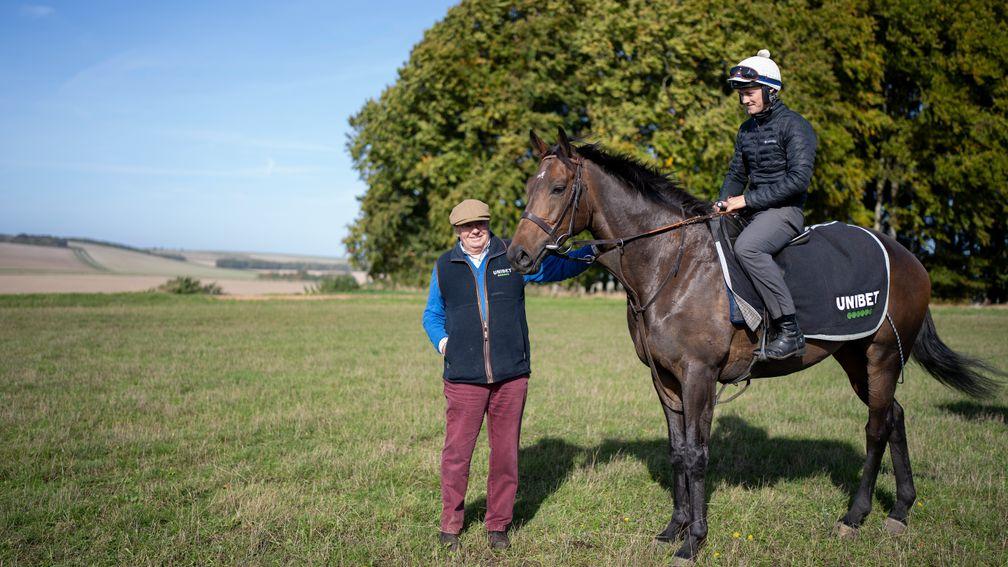
“His page is not exactly chock-a-block with black type, but there is something about it you don’t see every day,” I wrote. “His first four dams are all by multiple champion jumps sires, namely King’s Theatre, Supreme Leader, Strong Gale and Deep Run.”
February
Pat Sells, a vet based at Chasemore Farm in Surrey, blew our minds by talking us through a simple trick involving a length of rope for treating dummy foals that has been used on studs in recent years.
Professor John Madigan and his team at the University of California, Davis, suspected it was unlikely that the problem was caused by lack of oxygen at birth, as had long been presumed, as foals who suffered from it eventually grew up to be healthy.
Instead they reasoned that the birthing process, and in particular the pressure applied to the foal while it is in the birth canal for what should be 20 to 40 minutes during the second stage of labour, functions as an ‘on switch’ that activates consciousness and the need to stand and nurse.
For those dummy foals that have often been born too quickly, or by caesarean section, the pressure can be recreated by humans after foaling using the ‘Madigan Squeeze’.
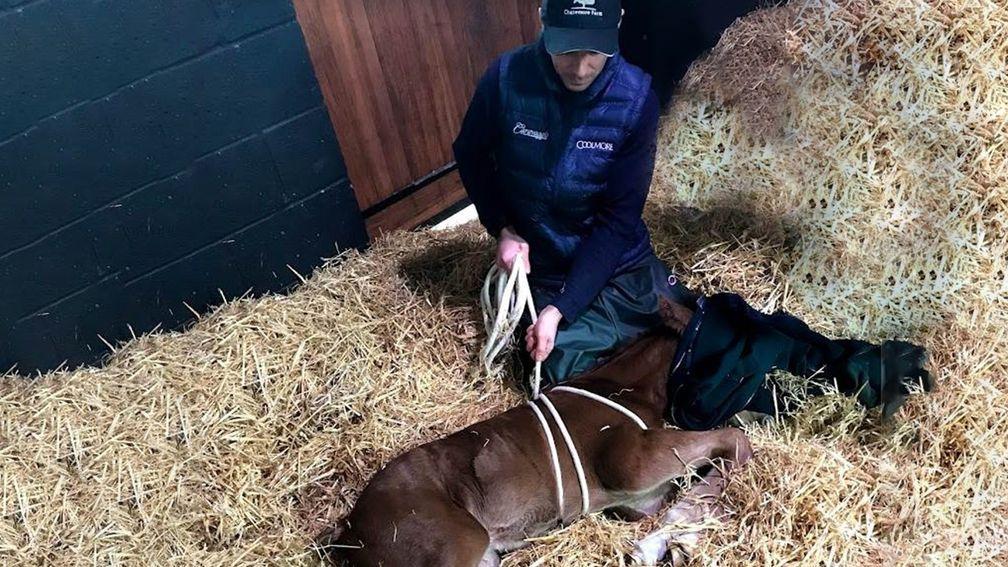
“I have a long, soft white rope in the car that I use on any foal displaying the tell-tale signs of maladjustment – the cardinal one being lack of maternal recognition,” reported Pat.
“A series of nooses and slip knots is tied around the foal so that three loops pass snugly around the chest and abdomen, all meeting back at one point behind the wither.
“When I pull on this line the foal immediately sinks to the ground, lying flat out, and then I place a towel or jacket over its eye and ear to reduce stimuli, and everyone stays quiet. For 20 minutes I place enough traction on the line to gently squeeze the foal: we are literally recreating the birthing process.
“When the time is up, I untangle the rope as the foal springs to its feet. It stretches as if coming out of a deep sleep, and whickers to its dam. For the first time in its life, it looks at its mother and recognises her. The foal nuzzles its way to the bag and latches on. It’s literally that instantaneous, and intensely satisfying.”
March
Serpentine’s gelding operation in Australia, making him a rare Derby winner to suffer the unkindest cut of all, caused much controversy, with some saying it was indicative of the Epsom Classic losing its importance as a stallion-making race.
I was saddened by the news – but not surprised, and nor panicked about the status of the Derby, as this was a unique case.
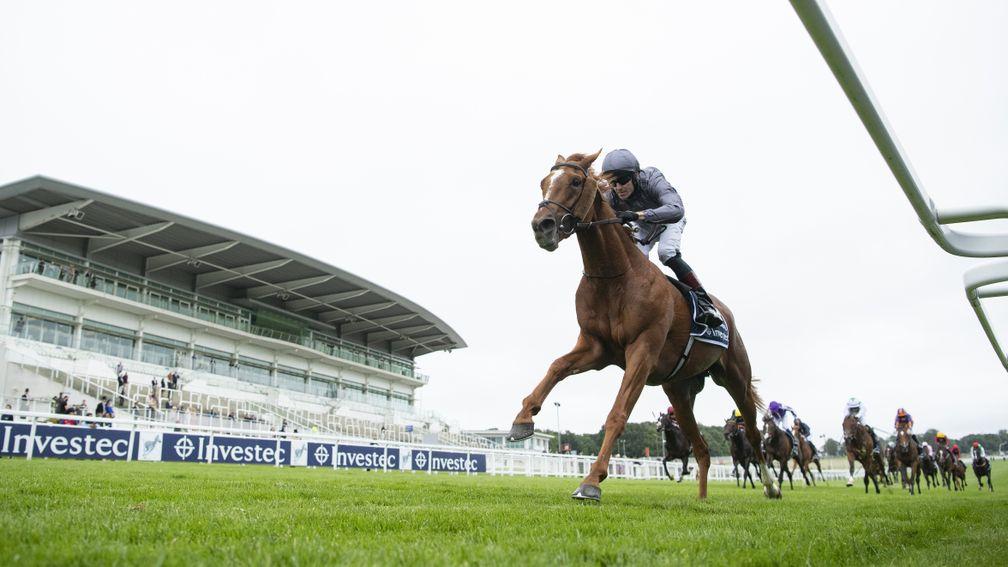
Serpentine delivered a commendable front-running performance in the Covid-delayed Derby of 2020, but it looked a little freakish after he failed to show that level of form again at three or four, and he is also one of a large number of well-bred sons of Galileo that already saturate the stallion market.
As I said, “the late Coolmore phenomenon was such a prolific source of top-class athletes, operating in an era of such large books, that there has not exactly been a shortage of stallion prospects by him in recent years.
“By my reckoning there are some 29 sons of Galileo standing in Ireland this year and another 12 at stud in Britain, and while I’m sure most are enhancing the gene pool, it is just basic economics that a commodity in such abundant supply is going to be of reduced value to potential buyers or users.”
Tellingly, there appear to be no new sons of Galileo retiring to stud on these shores in 2023.
April
Darley caused jaws to drop by making public the Plusvital Speed Gene designation of Dalham Hall Stud resident Cracksman on the eve of his first two-year-olds hitting the racecourse.
The rangy middle-distance star, who won the Coronation Cup and wasn’t beaten far in the Derbys at Epsom and the Curragh, is in fact a CC, the type most suited to running over five furlongs to a mile.
Cracksman must have inherited a C copy of this genetic marker from sire Frankel – who is by Galileo, a famous TT, but out of the speedy Danehill mare Kind, and so is presumably a CT – and from dam Rhadegunda, a miler by Pivotal out of a Green Desert mare.
Plusvital’s Professor Emmeline Hill pointed out that Cracksman’s four highest RPRs were achieved over ten furlongs, rather than the 12 furlongs over which he struggled to beat the inferior Salouen in the Coronation Cup, and that he never had the chance to show what he could do over shorter distances.

The information meant we knew that Cracksman has to pass on a C marker to his offspring and so has no TT produce, who do best in middle-distance and staying contests, and that he might therefore fare better as a first-season sire than would have been thought.
So it proved, as he was responsible for 17 individual winning two-year-olds in 2022, including Aloa in the Premio Dormello and Dance In The Grass in the Star Stakes.
May
Stradivarius returned to action at eight with a dominant victory in the Yorkshire Cup, prompting debate over his future at stud.
Would a stayer be given a fair crack of the whip as a Flat stallion, even one of the most brilliant and best-loved of recent years? If not, would National Hunt breeders accept him, since he is a smaller, compact chestnut with white markings?
“My sincere hope is that he retires to a facility like the National Stud in his adopted hometown of Newmarket, where he could combine covering duty with a role as a visitor attraction – as much as a working stallion can be such, anyway,” I wrote that month.
“Stradivarius should be advertised at a reasonable mid-range fee, so that anyone with a mare for either discipline – be they an owner-breeder, hobby breeder or commercial breeder willing to roll the dice with something a bit different at the sales – could use him.”
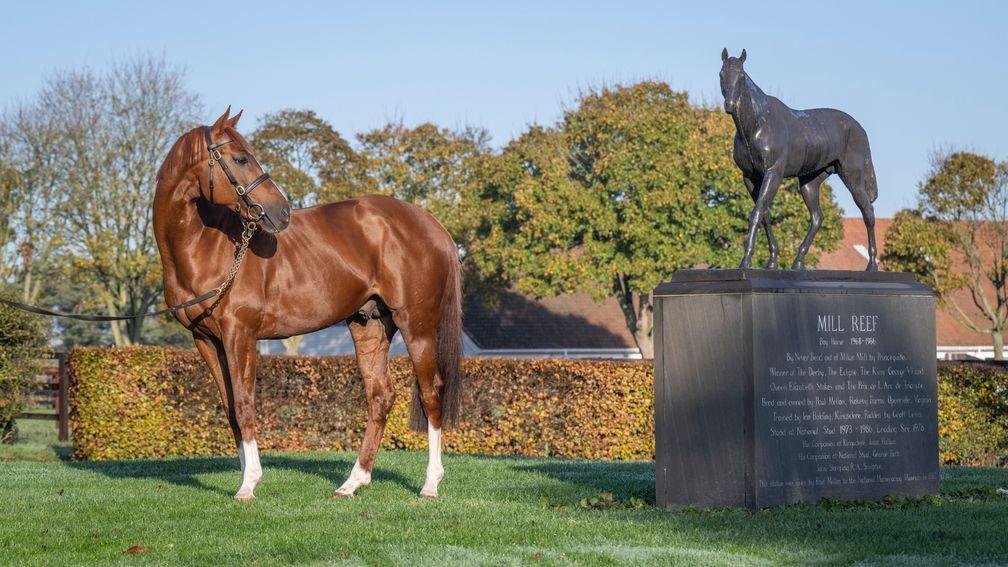
May 15 will go down in history as the day I turned out to be right about something, as four months later it was announced that Stradivarius would indeed be retired to the National Stud.
Mind you, looking back at my words with the benefit of hindsight, I think I was too tepid about Stradivarius’s appeal as a Flat stallion.
Having been reminded of his impressive closing sectional times in a spot of clever marketing by owner-breeder Bjorn Nielsen, and having seen the horse close-up at his new home, realising how athletic he is, I'm now more positive about him on that score.
June
New Bay came of age at Royal Ascot by putting two winners on the board in the shape of Claymore and Saffron Beach, along with the eyecatching Prince of Wales’s Stakes runner-up Bay Bridge and a pair of handicap thirds in Jimi Hendrix and Jumby.
“What I like most about the sire’s progeny is that, much like those by Dubawi and another of his popular sire sons, Night Of Thunder, they seem to be generous horses who try and try and try,” I noted.
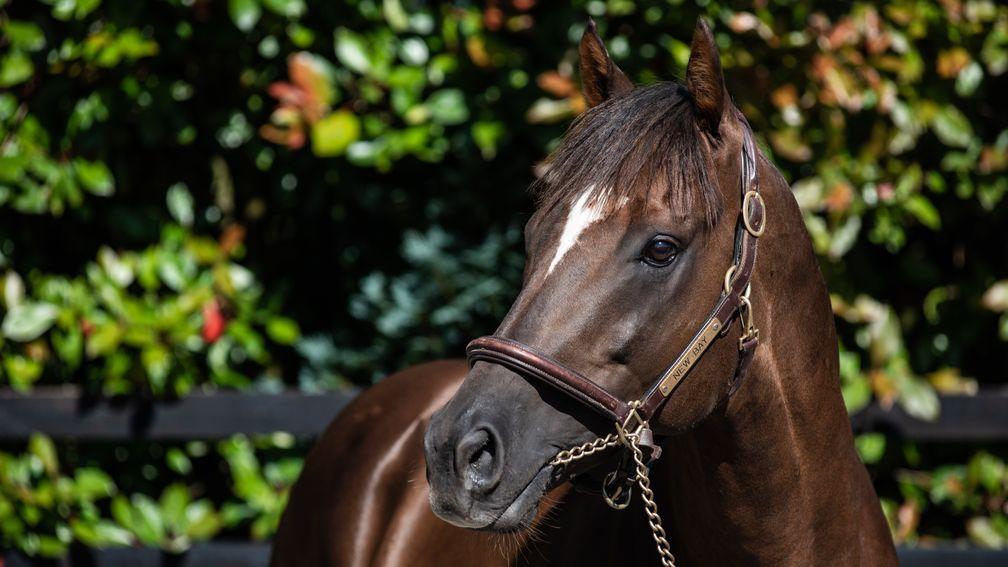
As it turned out, that wasn’t to be the Ballylinch Stud hotshot’s biggest moment of the year, as he delivered two winners on British Champions Day – Bay Bridge gaining deserved Group 1 laurels in the Champion Stakes and Bayside Boy springing a surprise in the Queen Elizabeth II Stakes.
New Bay’s covering fee has duly been increased to €75,000 for 2023, when he will stand alongside Bayside Boy, whose price is a more affordable €15,000.
July
In the wake of their £65,000 Goffs Orby yearling buy Prosperous Voyage taking the scalp of Inspiral to win the Falmouth Stakes, Grant and Tom Pritchard-Gordon of Badgers Bloodstock told us how they were using statistics to inform their purchasing.
“Big data has become more and more part of our company since we went to Japan about ten years ago to attend the JRHA Select Sale," said Tom. "We were given a tour of Northern Farm’s pre-training centres and we realised that in terms of using data they’re so far in advance of what we’re doing here. It made us think we should do a similar thing with the sourcing of horses rather than training.
“So I set about collating sales and racing results for yearlings who had been through the ring in Britain and Ireland, and looking for trends and anomalies that might give us an advantage.”
That’s not to say that the Pritchard-Gordons were prioritising stats above studying physicals, though.
“The horse that has data and conformation going for it is the holy grail, and we’re absolutely fastidious about not comparing the stats with our inspection notes until we’ve seen every horse, so that we don’t have bias towards one individual because its stats are good,” continued Tom.

Hong Kong Mile winner California Spangle was one of Badgers Bloodstock’s other six yearling or two-year-old buys in 2020, in his case having been purchased privately when the breeze-ups were delayed due to Covid, so the agency’s new approach must be working.
August
Good Morning Bloodstock was transformed into Guten Morgen Bloodstock for a fortnight as I embarked on a road trip around Germany, whose stamina-focused breeding industry has given us the likes of Danedream, Novellist and Torquator Tasso.
I saw the historic former state studs of East Germany, including Gestut Görlsdorf, birthplace of Deutsches Derby hero and popular sire Sea The Moon, then the ever-successful Gestut Brümmerhof and Gestut Fährhof in north Germany, before travelling south to see Gestut Itlingen and Gestut Hof Ittlingen.
It was then on to two palatial studs near Cologne, Gestut Röttgen and Gestut Schlenderhan, and finally to the newer but no less successful Gestut Etzean and Gestut Karlshof south of Frankfurt.
The visit to Etzean gave rise to one of my most talked about articles in Good Morning Bloodstock all year: the discovery that Juddmonte International winner Japan, like all of the stud’s own sires, is paired with a companion mare and lives with her peacefully in adjacent stables and a shared paddock.
“The stallions lead happier and less lonely lives and they are also easier to handle as they are impeccably well behaved, showing no signs of 'toxic masculinity',” I noted. “All of which means the stud doesn’t have to employ a stallion handler.”
September
As the British and Irish yearling sales got into top gear I spoke to jockey Gary Carroll, who was dipping his toe into consigning his own pinhooks for the first time at the Goffs Sportsman’s fixture.
He told Good Morning Bloodstock: “It’s something I’ve always wanted to do, and want to expand on for when the riding starts to slow down. It’s all a learning process at the moment, but hopefully these two colts will do well and I can kick on.”
Carroll received €21,000 for a Sioux Nation colt who was sourced for €15,000, which wouldn’t have made the headlines but at least provides him with a solid base on which to build for the future.
We also heard from Danish bloodstock agent Filip Zwicky about the rise of Scandinavian involvement in the top tier of trade for Irish yearlings. “I would say that they have bought fewer yearlings in Ireland in the past five years, as it's all about quality over quantity now,” he said.

A couple of days later, Norwegian businessman Magne Jordanger duly bought the top lot in the second session of the Goffs Orby Yearling Sale, the €575,000 Kodiac full-brother to useful juvenile Magical Sunset who will join Richard Hannon.
While in Ireland for the sale, I dropped into the Irish National Stud to sample the relatively new Irish Racehorse Experience, a popular attraction with locals but not yet as known among overseas visitors as it was denied a grand opening due to lockdowns.
It was marvellous, with all sorts of interactive displays and fascinating exhibits, and even a chance to race your own horse against fellow visitors on a simulator. The stud’s Ellen Mitchell, who was showing me around, said she’d play along just for fun and promptly beat me and my mount Amulet. In spite of that spot of skulduggery I would still heartily recommend a trip there.
October
Havana Grey was the talk of Tattersalls during the October sales, with his inexpensively bred first crop having yielded a slew of winners and 13 black-type performers up to that point, and his second generation of yearlings selling for 325,000gns, 220,000gns, 155,000gns and so on in Newmarket.
What price might he command at Whitsbury Manor Stud in 2023? Would those budget breeders who helped make him still be able to afford him, and accommodated in his book when the biggest names in the industry would now want nominations to him?

I put some of those questions to Ed Harper at Park Paddocks, after some difficulty trying to find him as he had – seriously – donned a cap and coat in non-Whitsbury Manor colours in order to avoid constant queries and requests from breeders at the sales.
“Managing this first step up for a successful stallion is the best but hardest part of the job,” he told me. “This is absolutely what I hoped would happen, but I’m going to have to be at the peak of my diplomatic powers in the next few months, which is not what I’m best at; I’m better at the hard selling when times are tough.
"But I’ll just try to listen to people, and be as fair to everyone as I possibly can be.”
I ventured in that day’s email that Havana Grey’s revised fee might soar past £20,000, such was the clamour for his services, but as it turned out the stud went only as far as £18,500.
He would likely still be heavily oversubscribed if my estimate was correct, but the pricing was deliberately conservative in order to protect regular clients’ profit margins.
November
If you were to believe sitcoms and sketch shows, accidental bids at auctions due to a scratched nose or a wave at friends are a regular occurrence, and yet I’d never heard of a single case of it happening at a thoroughbred sale.
That was until I found out about German owner Holger Renz, who was rather too animated on the phone when sitting in the ring at the BBAG Yearling Sale in 2020 and had several offers for an Adlerflug colt accepted by mistake, with the auctioneer declaring him the winning bidder at €38,000, much to his surprise.
Renz, who is well known in his native country for racing horses who are bought for bargain sums, reluctantly went through with the transaction, and thank goodness he did.

The colt’s full-brother Torquator Tasso went on to win the Prix de l’Arc de Triomphe in 2021, and then Tunnes himself took the Grosser Preis von Bayern by ten lengths this November.
Renz’s English-speaking wife Alexandra said: “Holger came and told me what had happened and said the price was too expensive, and that he didn’t want to pay that much, but that he also didn’t want to cause any upset by cancelling the sale. Of course, he's very relieved now that he didn’t.”
December
No doubt about it, stud staff are the unsung heroes of the racing industry, toiling away at all times of day, all through the year and in all sorts of weather to make sure horses are brought into the world and then reared in the best possible circumstances.
In recent weeks I got wind of one bloodstock employee whose efforts over the last quarter of a centuryor so have been particularly unjustly overlooked: John Fitzell, who has carried out all his duties at Ballykelly Stud in County Tipperary while being confined to a wheelchair due to suffering from multiple sclerosis.
He manages the stud, which bred this season’s Royal Bond Novice Hurdle winner Marine Nationale and Cheltenham Festival heroine Indefatigable, from the driver’s seat of a specially adjusted jeep.

John told me that not being able to do physical work on the farm was frustrating, especially for an ex-sportsman who used to leap over fences that he can’t even stand up to open now, but that his other powers had been heightened.
“My eyes still work, thank God, and I’ve saved a good few horses over the years when I’ve been going around the stud looking at the stock and seen them down in the early stages of colic,” he said.
Stud owner John B O’Connor insisted that he was the “net beneficiary” of having Fitzell oversee the operation in spite of his disability.
“I couldn’t have done anything at Ballykelly Stud without him,” he emphasised.
Good Morning Bloodstock resumes on Wednesday, January 4. To subscribe for free, go to racingpost.com/goodmorningbloodstock
Published on inNews
Last updated
- Something different for Burrows as Group 1-winning trainer consigns at the Tattersalls Cheltenham December Sale
- Breeding right to Blue Point sells for €430,000 on Darley winning bid platform
- Classic hero Metropolitan set for strong home support with Etreham busy at the sales
- 'It has been nothing short of incredible' - Grace Hamilton on Godolphin Flying Start experience
- ‘She’s one of the best two-year-olds in Europe’ - bluebloods set to go down a storm at Arqana Breeding Stock Sale
- Something different for Burrows as Group 1-winning trainer consigns at the Tattersalls Cheltenham December Sale
- Breeding right to Blue Point sells for €430,000 on Darley winning bid platform
- Classic hero Metropolitan set for strong home support with Etreham busy at the sales
- 'It has been nothing short of incredible' - Grace Hamilton on Godolphin Flying Start experience
- ‘She’s one of the best two-year-olds in Europe’ - bluebloods set to go down a storm at Arqana Breeding Stock Sale